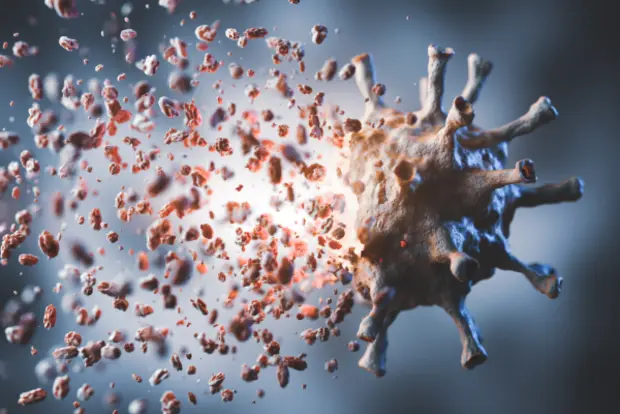Detection of SARS‐CoV‐2‐specific Memory B Cells to Delineate Long‐term COVID‐19 Immunity

Shutterstock
Published: 2021
Allergy, the official journal of the European Academy of Allergy and Clinical Immunology (EAACI)
The COVID‐19 pandemic has led to devastating health outcomes with the death toll exceeding two million cases as of February 2021. However, there is still limited data on long‐term immunity against SARS‐CoV‐2. Long‐term immunity can be analysed by SARS‐CoV‐2‐specific memory T and B cell formation. We and others have reported on SARS‐CoV‐2‐specific memory T‐cell responses in acute infection and long‐term follow up.1, 2 To our knowledge, however, only studies with Australian and US‐American cohorts assessed long‐term BMEMORY‐cells for more than 6 months.2, 3 Memory B (BMEMORY)‐cells can persist lifelong, and upon reinfection can be triggered to immediately start forming plasma cells secreting neutralizing antibodies.4 Thus, quantifying BMEMORY‐cell levels may be used as an indicator of long‐term immunity in convalescent patients. Therefore, this study aimed to delineate SARS‐CoV‐2 spike (S)‐protein‐specific BMEMORY‐cells in a well‐characterized cohort of central‐European COVID‐19‐patients up to several months after infection.
- Constantin J. Thieme
- Mohamed Abou‐el‐Enein
- Enrico Fritsche
- Moritz Anft
- Krystallenia Paniskaki
- Sarah Skrzypczyk
- Adrian Doevelaar
- Magdi Elsallab
- Nicola Brindle
